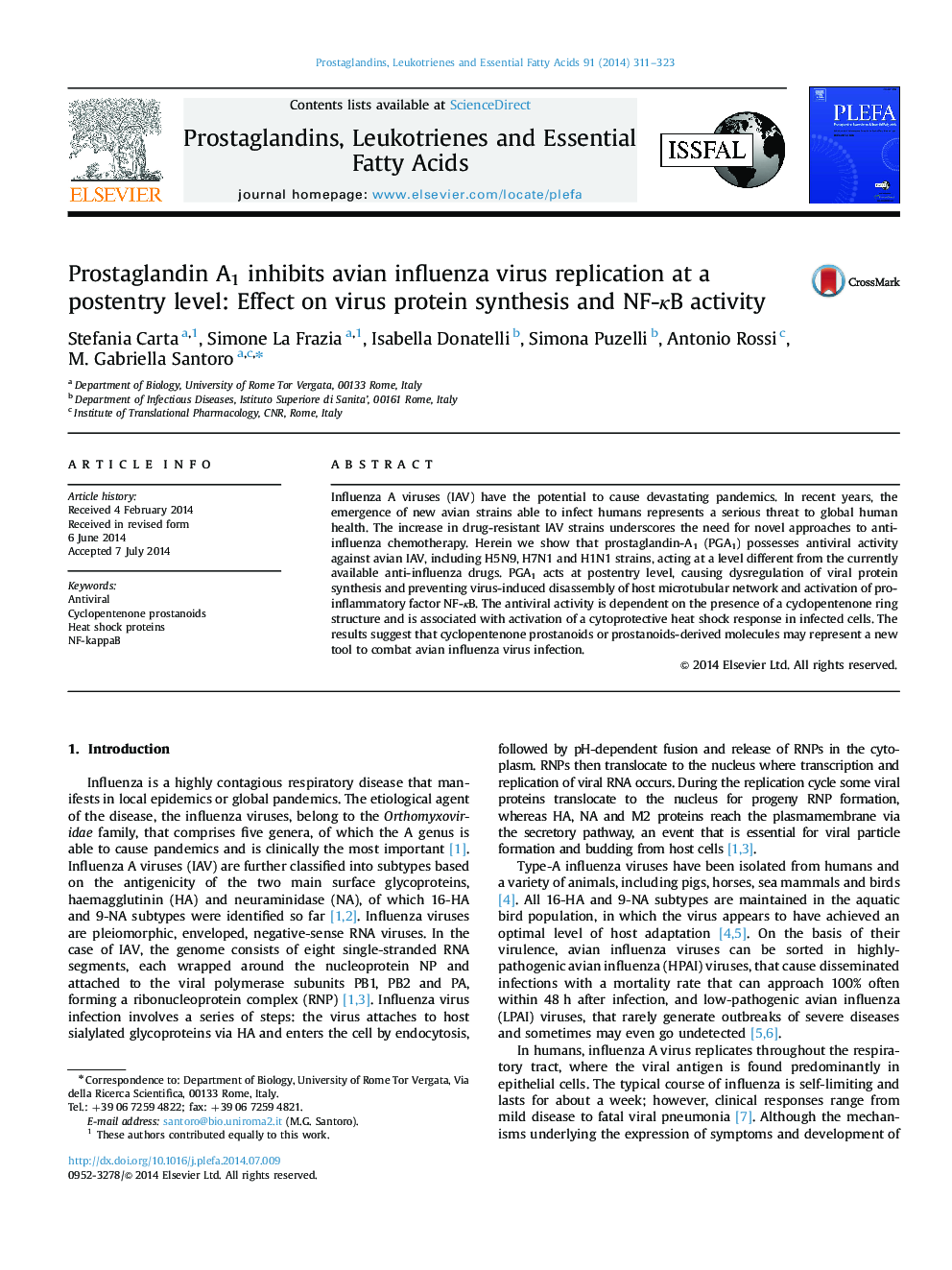| کد مقاله | کد نشریه | سال انتشار | مقاله انگلیسی | نسخه تمام متن |
|---|---|---|---|---|
| 2777592 | 1152739 | 2014 | 13 صفحه PDF | دانلود رایگان |

Influenza A viruses (IAV) have the potential to cause devastating pandemics. In recent years, the emergence of new avian strains able to infect humans represents a serious threat to global human health. The increase in drug-resistant IAV strains underscores the need for novel approaches to anti-influenza chemotherapy. Herein we show that prostaglandin-A1 (PGA1) possesses antiviral activity against avian IAV, including H5N9, H7N1 and H1N1 strains, acting at a level different from the currently available anti-influenza drugs. PGA1 acts at postentry level, causing dysregulation of viral protein synthesis and preventing virus-induced disassembly of host microtubular network and activation of pro-inflammatory factor NF-κB. The antiviral activity is dependent on the presence of a cyclopentenone ring structure and is associated with activation of a cytoprotective heat shock response in infected cells. The results suggest that cyclopentenone prostanoids or prostanoids-derived molecules may represent a new tool to combat avian influenza virus infection.
Journal: Prostaglandins, Leukotrienes and Essential Fatty Acids (PLEFA) - Volume 91, Issue 6, December 2014, Pages 311–323